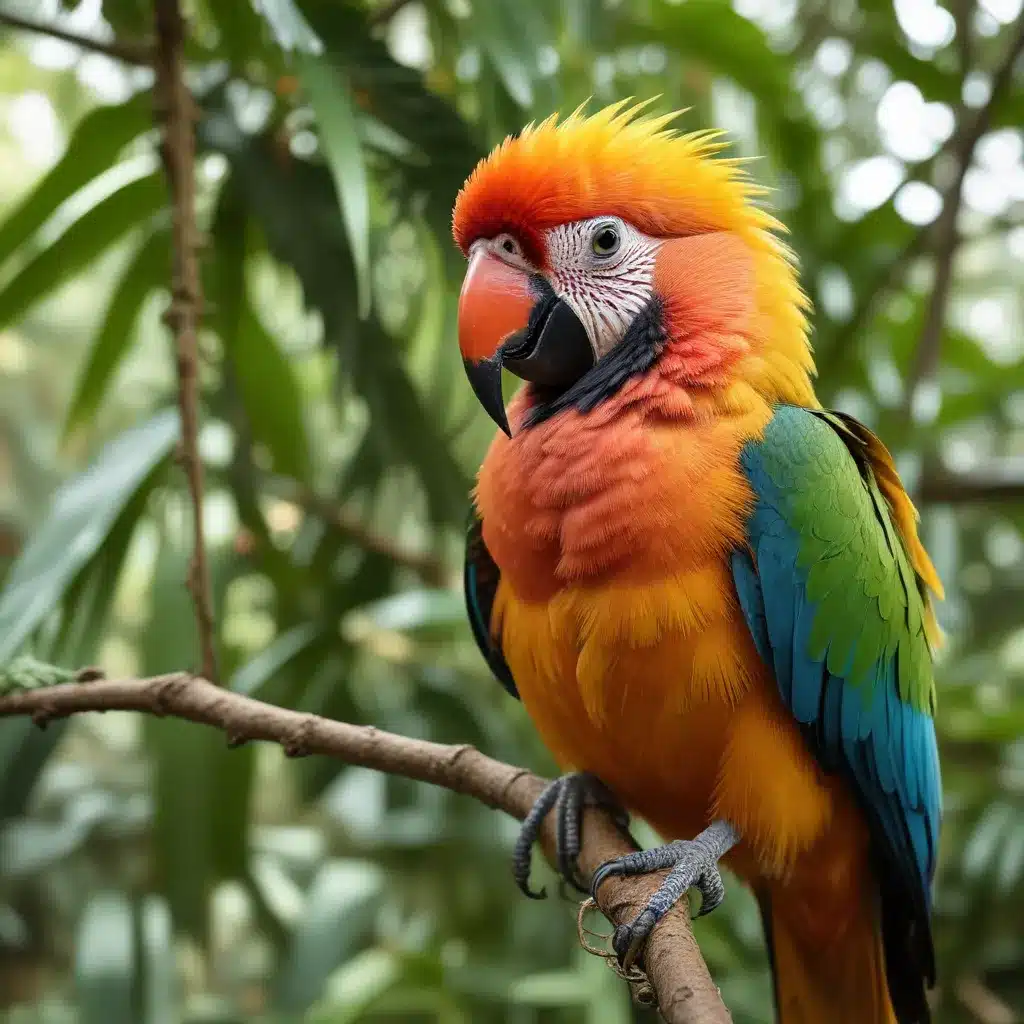
Exotic Bird Care: Navigating the Complexities of Exotic Bird Nutrition
As an experienced avian caretaker, I’ve had the pleasure of working with a wide variety of fascinating feathered friends. From the vibrant plumage of macaws to the delicate beauty of canaries, each exotic bird species brings its own unique set of nutritional needs and care requirements. Navigating the complexities of exotic bird nutrition is a crucial aspect of ensuring the health and well-being of these incredible creatures.
Avian Diversity and Dietary Needs
The avian world is a vast and wondrous realm, with thousands of species spanning the globe. Each of these feathered wonders has evolved to thrive in its own unique habitat, and their dietary requirements reflect this diversity. Whether you’re caring for a majestic cockatoo or a playful parrotlet, understanding the specific nutritional needs of your avian companion is paramount.
Exotic Bird Species
The term “exotic bird” encompasses a wide range of species, from the majestic macaws and cockatoos to the diminutive finches and canaries. These birds hail from diverse geographical regions, each with its own distinct ecosystem and natural food sources. Parrots, for instance, are known to thrive on a varied diet of seeds, nuts, fruits, and vegetables, while insectivorous species like toucans and aracaris require a more protein-rich menu.
Avian Nutritional Requirements
Exotic birds, much like their domestic counterparts, have complex nutritional needs that must be meticulously addressed. Proper nutrition is essential for maintaining vibrant plumage, supporting a strong immune system, and ensuring overall health and longevity. Factors such as protein, fat, carbohydrates, vitamins, and minerals all play a crucial role in an exotic bird’s well-being.
Specialized Feeding Strategies
Exotic birds often require specialized feeding strategies to mimic their natural foraging behaviors. This can include providing a variety of fresh produce, incorporating whole grains and seeds, and offering enrichment activities that encourage natural foraging instincts. By replicating the diverse dietary sources found in their wild habitats, we can ensure our feathered companions receive the balanced nutrition they require.
Navigating Exotic Bird Nutrition
Navigating the complexities of exotic bird nutrition can be a daunting task, but with the right knowledge and tools, it becomes a rewarding journey. As an experienced avian caretaker, I’ve learned that a comprehensive approach is key to meeting the diverse dietary needs of these remarkable creatures.
Dietary Challenges
Exotic birds often face unique dietary challenges, from sensitivities to certain ingredients to the need for specialized supplementation. Feather plucking, reproductive disorders, and other health issues can be directly linked to nutritional imbalances, making it crucial to address these concerns proactively.
Nutrient Balancing
Achieving the perfect balance of nutrients for an exotic bird requires a deep understanding of their species-specific requirements. This involves carefully curating a diet that provides the right ratios of proteins, fats, carbohydrates, vitamins, and minerals. Regular consultations with an avian veterinarian can help guide this delicate balancing act.
Supplementation Considerations
In some cases, exotic birds may require additional supplementation to ensure they receive all the necessary nutrients. This could include vitamins, minerals, or even specialized supplements tailored to their individual needs. Consulting with a qualified avian nutritionist can help you navigate the world of supplementation and ensure your feathered friend is getting the support they need.
Habitat and Environmental Factors
Providing the right environment for your exotic bird is just as crucial as meeting their dietary requirements. The design of their enclosure, as well as the temperature and humidity levels, can significantly impact their overall health and well-being.
Enclosure Design
Crafting the perfect habitat for an exotic bird involves careful consideration of space, perching options, and enrichment opportunities. Providing a spacious, multi-level enclosure with a variety of natural branches, toys, and foraging areas can help fulfill their innate behavioral needs.
Temperature and Humidity
Exotic birds often hail from regions with specific temperature and humidity ranges. Maintaining the appropriate environmental conditions within their enclosure is vital to their comfort and overall health. Monitoring and adjusting these factors as needed can prevent respiratory issues and other climate-related problems.
Enrichment and Behavioral Needs
In addition to a suitable physical environment, exotic birds require ample mental stimulation and opportunities to engage in natural behaviors. Incorporating foraging toys, rotating novel objects, and encouraging natural nesting and preening activities can help prevent boredom and promote overall well-being.
Veterinary Considerations
Regular veterinary checkups and proactive healthcare are essential for the long-term well-being of exotic birds. As an experienced avian caretaker, I’ve learned that staying ahead of potential issues can make all the difference in the world.
Preventive Healthcare
Routine wellness exams, preventive treatments, and early intervention are crucial for maintaining the health of exotic birds. Partnering with an avian veterinarian who specializes in the care of these unique creatures can help identify and address any potential concerns before they escalate.
Dietary-Related Disorders
Nutritional imbalances can lead to a host of health issues in exotic birds, from feather-plucking behaviors to reproductive problems. By working closely with your veterinarian, you can identify and address these concerns through appropriate dietary adjustments and supplementation.
Treatment and Management
In the event of a health issue, your avian veterinarian will be equipped to provide the necessary treatment and management strategies. This may involve medication, specialized diets, or even changes to the bird’s environment to support their recovery and long-term well-being.
Caring for exotic birds is a rewarding and enriching experience, but it requires a deep understanding of their unique needs. By navigating the complexities of exotic bird nutrition, providing the right habitat and environmental conditions, and partnering with experienced veterinary professionals, you can ensure your feathered friends thrive and live their best lives. For more information and resources on exotic bird care, be sure to visit Mika Birds Farm.


